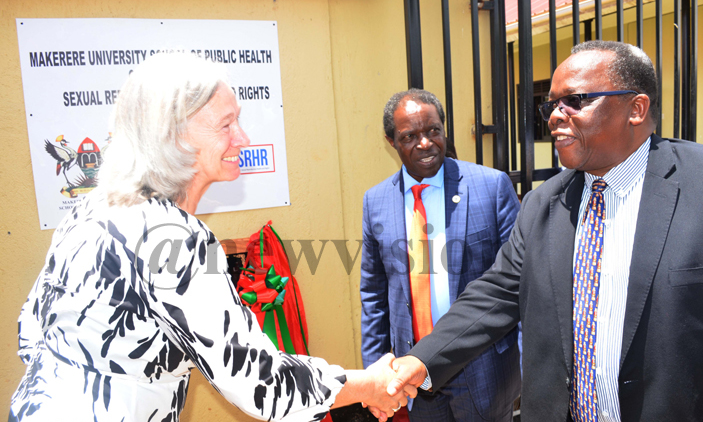By Violet Nabatanzi
Through the Makerere University School of Public Health (MakSPH), the Dutch government is implementing a four- year project running from 2016-2020.
The Government of Netherlands has released sh15b for Sexual Reproductive Health (SRH) promotion in Uganda.
Through the Makerere University School of Public Health (MakSPH), the Dutch government is implementing a four- year project running from 2016-2020.
Speaking during the launch of the Makerere University School of Public Health for Sexual Reproductive Health Rights Centre at Kasangati Health Center IV last week, Dr. Elizabeth Nabiwemba, the project director said the project will help to increase access as well as the quality of SRH in Uganda. She disclosed that at least 360 participants have completed training.
The trainees were selected from all regions, including health workers, community development leaders, judicial officers, teachers, police and prison officers among others. This project came in place as a response to the poor indicators in sexual and reproductive health especially concerning maternal and adolescents health,” Nabiwemba said.
“We know that there is a high rate of maternal mortality, high total fertility rate and high teenage pregnancies that are forcing many girls to drop out of school. In response to these poor indicators, the project came into place to be able to see how we can address the delivery of sexual and reproductive health services in Uganda."
According to statistics, over 62% of young women and 48% of young men have had their first sexual encounter by the age of 18 and according to Uganda Demographic Health Survey (UDHS) compared to other age groups, adolescents are the only group with rising HIV/AIDS infection rates.
The high growth in population is driven by high rates of unwanted births, currently at 52% with teenage pregnancies accounting for 25% of over one million pregnancies recorded annually.
Recent statistics also show that despite the drop in the fertility rate from 6.8 to 6, the country has one of the highest fertility rates in the world.
The deputy vice-chancellor of Makerere University Prof. William Bazeyo explained that the project is timely, adding that it’s becoming an autonomous body equivalent to a college.
He said there was a need for expansion so that they improve areas that were not looked at and embrace more human capacity so that they have more programmes and activities.
He emphasised that the MakSHP will not be autonomous outside the university saying that each college is autonomous, but the School of Public Health has been part of the college of health sciences.
Beneficiaries speak out
Donald Baisi, a nurse at Namayingo district local government said, the training has helped him change his attitude towards service delivery.
We realise that some patients shun our facilities because of the failure to satisfy their needs.
Source : New Vision


